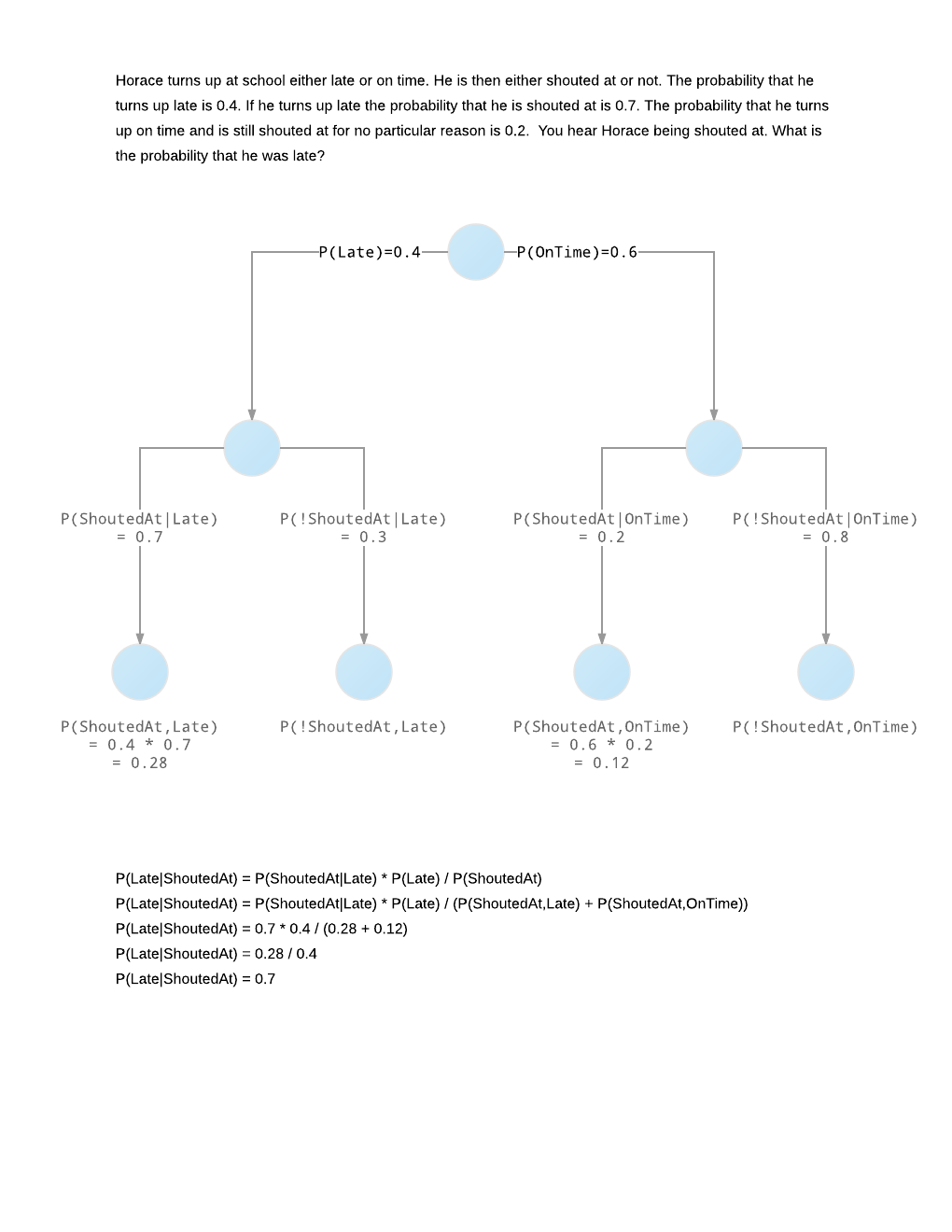Horace and School Conditional Probability (Part II)
Horace turns up at school either late or on time. He is then either shouted at or not. The probability that he turns up late is If he turns up late, the probability that he is shouted at is . If he turns up on time, the probability that he is still shouted at for no particular reason is .
You hear Horace being shouted at. What is the probability that he was late?
This problem is not original.
The answer is 0.7.
This section requires Javascript.
You are seeing this because something didn't load right. We suggest you, (a) try
refreshing the page, (b) enabling javascript if it is disabled on your browser and,
finally, (c)
loading the
non-javascript version of this page
. We're sorry about the hassle.

Let A be the event that Horace turns up late and B be the event that he gets shouted at. We must then calculate the probability that he was late given that he is shouted at. This will be
P ( A ∣ B ) = P ( B ) P ( A ∩ B ) .
Now P ( A ∩ B ) = P ( A ) ∗ P ( B ∣ A ) = ( 0 . 4 ) ( 0 . 7 ) = 0 . 2 8 .
Next, P ( B ) = P ( B ∩ A ) + P ( B ∩ A ) = ( 0 . 4 ) ( 0 . 7 ) + ( 1 − 0 . 4 ) ( 0 . 2 ) = 0 . 4 .
Thus P ( A ∣ B ) = 0 . 4 0 . 2 8 = 0 . 7 .